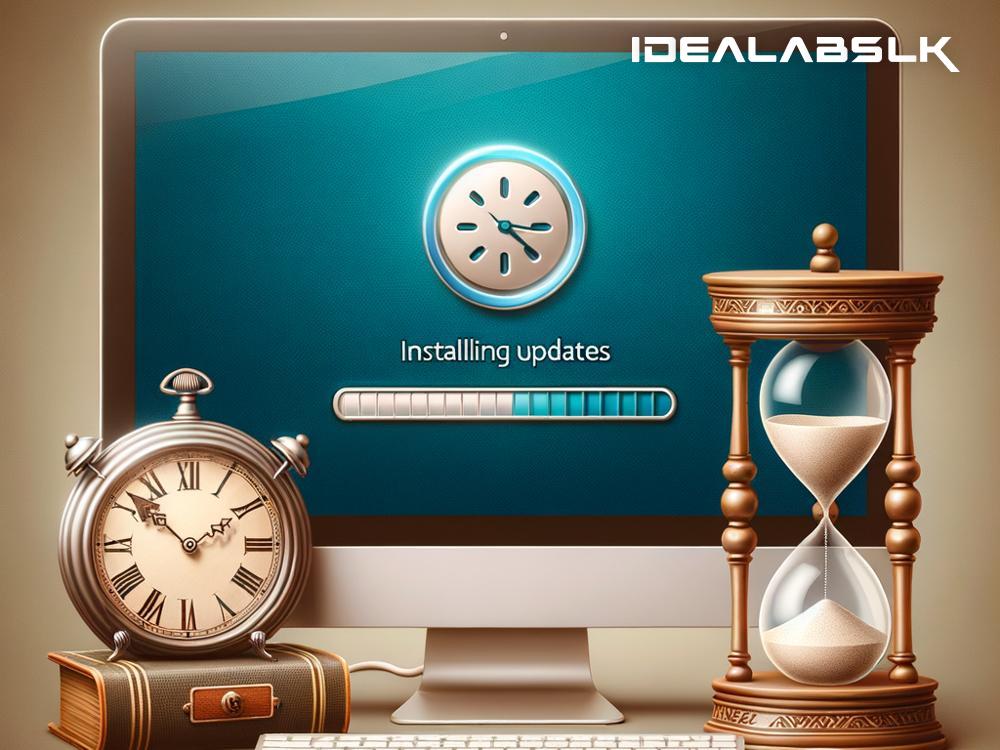Why Your PC Takes Too Long to Install Updates
Have you ever found yourself staring at your computer screen, tapping your fingers impatiently, wondering why it's taking forever to install updates? You're not alone. This experience can be frustrating, especially when you've got important work to do or are eager to use your PC for entertainment. But, why does this happen? Let’s dive into some common reasons why your PC takes its sweet time to install updates and what you can do about it.
1. Your Internet Connection
Imagine trying to fill a swimming pool with a garden hose. The speed of the water flow determines how fast the pool fills up. Similarly, the speed of your internet connection plays a significant role in how quickly updates are downloaded to your PC. If you have a slow or unstable internet connection, downloading updates can feel like an eternity.
Solution: Check your internet speed online and consider upgrading your plan or switching to a faster internet provider if necessary. Sometimes, simply resetting your router can improve connection speed.
2. Outdated Hardware
Your PC's hardware is like the engine of a car. Older engines might struggle to keep up with the demands of driving up a steep hill. If your computer is on the older side, its hardware might not be capable of quickly processing and installing updates.
Solution: While you might not be ready to buy a new computer, upgrading certain components like the hard disk to an SSD (Solid State Drive) or increasing the RAM can significantly improve performance.
3. Limited Disk Space
Updates require a certain amount of free space to be successfully downloaded and installed. If your PC's hard drive is nearly full, it can slow down the update process dramatically, as the system struggles to find space to shuffle around files and accommodate the new data.
Solution: Regularly clean your hard drive by removing unnecessary files and programs. Tools like Disk Cleanup can help you free up space efficiently.
4. Too Many Programs Running in the Background
Having multiple programs running in the background can eat into your PC's resources, slowing down the installation of updates. This is akin to trying to cook a five-course meal in a tiny kitchen; things are going to get slowed down with limited space to work.
Solution: Close unnecessary programs before starting the update process. You can also use Task Manager to see which programs are using up most of your resources and consider shutting them down temporarily.
5. System Fragmentation
Over time, the files and data on your PC can become fragmented, meaning they're scattered across the hard drive. This can make it harder for your computer to piece together the necessary information for updates, slowing down the process.
Solution: Use a defragmentation tool regularly. Modern operating systems like Windows 10 automatically defragment your drive, but it doesn't hurt to manually check and defrag if needed, especially if you're using an older system.
6. Your Update Settings
Sometimes, the reason your updates are slow could be down to your settings. If you've set your PC to download and install updates at specific times, but those times coincide with peak internet usage hours in your household, your updates might crawl at a snail's pace.
Solution: Adjust your update settings to a time when internet usage is low, or consider manually installing updates when it's convenient for you.
7. Antivirus Software
While antivirus software is crucial for protecting your computer, it can sometimes slow down updates. This is because the software is diligently checking the update files for threats, which can be a time-consuming process.
Solution: Ensure your antivirus software is up to date. Some antivirus programs offer a 'Gaming Mode' or similar, which temporarily reduces the impact on your system's resources during updates or gaming sessions.
Conclusion
While waiting for PC updates can test your patience, understanding the reasons behind the delay can help you take proactive steps to mitigate the issue. By optimizing your internet connection, freeing up disk space, upgrading your hardware when possible, and tweaking your settings, you can significantly reduce the time it takes to install updates. Remember, keeping your PC updated is crucial for security, stability, and performance, so a little patience goes a long way toward ensuring your system runs smoothly and securely.

